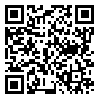Volume 6, Issue 4 (December 2024)
IEEPJ 2024, 6(4): 337-356 |
Back to browse issues page
Download citation:
BibTeX | RIS | EndNote | Medlars | ProCite | Reference Manager | RefWorks
Send citation to:



BibTeX | RIS | EndNote | Medlars | ProCite | Reference Manager | RefWorks
Send citation to:
Hamzehei H, Rezaei Molajegh R, Eghbali A. (2024). Structural Model of Cyberbullying Based on Stressful Life Events, Family Emotional Atmosphere and Empathy: The Mediating Role of Loneliness in Adolescents. IEEPJ. 6(4), 337-356. doi:10.22034/6.4.337
URL: http://ieepj.hormozgan.ac.ir/article-1-788-en.html
URL: http://ieepj.hormozgan.ac.ir/article-1-788-en.html
1- Master's student in Educational Psychology, Farhangian University, Tehran, Iran
2- Department of Psychology and Counselling, Farhangian University, Tehran, Iran ,rs.rezaei@cfu.ac.ir
3- Department of Psychology and Counselling, Farhangian University, Tehran, Iran
2- Department of Psychology and Counselling, Farhangian University, Tehran, Iran ,
3- Department of Psychology and Counselling, Farhangian University, Tehran, Iran
Abstract: (1861 Views)
Objective: The purpose of the present study was to propose a structural model of cyberbullying, which is based on stressful life events, family emotional atmosphere, and empathy, with the inclusion of loneliness as a mediator.
Methods: The research design employed in this study was descriptive-correlational. The target population consisted of all second-year high school students in Marand city (Iran) in 2023, totaling 8000 individuals. A sample size of 310 participants was determined using Klein's rule, and selected using multi-stage cluster sampling. Data were collected through Antoniadou Cyberbullying Questionnaire (2016), Russell loneliness Questionnaire (1996), Byrne et al. Adolescent Stress Questionnaire (ASQ), Hillburn Family Emotional Atmosphere (1964), and Jolliffe and Farrington Basic Empathy Scale (2006). Data analysis was conducted using the path analysis method via SPSS-28 and AMOS-24 software.
Results: The findings revealed a favorable fit between the proposed research model and the collected data. Upon analyzing the results, it was discovered that the direct impact of family emotional atmosphere and empathy on cyberbullying was found to be negative and statistically significant. On the other hand, the direct effect of loneliness on cyberbullying was positive and statistically significant. However, no significant relationship was observed between stressful life events and cyberbullying. Furthermore, the results indicated that loneliness played a significant mediating role in the relationship between stressful life events, family emotional atmosphere, and empathy with cyberbullying.
Conclusions: In conclusion, the results suggest that cyberbullying may be indicative of a low level of family emotional atmosphere and empathy, as well as a high level of loneliness. Psychologists and educational counselors should give advice on improving the emotional atmosphere of the family and teaching empathy skills and giving advice to parents to prevent cyberbullying in teenagers.
Methods: The research design employed in this study was descriptive-correlational. The target population consisted of all second-year high school students in Marand city (Iran) in 2023, totaling 8000 individuals. A sample size of 310 participants was determined using Klein's rule, and selected using multi-stage cluster sampling. Data were collected through Antoniadou Cyberbullying Questionnaire (2016), Russell loneliness Questionnaire (1996), Byrne et al. Adolescent Stress Questionnaire (ASQ), Hillburn Family Emotional Atmosphere (1964), and Jolliffe and Farrington Basic Empathy Scale (2006). Data analysis was conducted using the path analysis method via SPSS-28 and AMOS-24 software.
Results: The findings revealed a favorable fit between the proposed research model and the collected data. Upon analyzing the results, it was discovered that the direct impact of family emotional atmosphere and empathy on cyberbullying was found to be negative and statistically significant. On the other hand, the direct effect of loneliness on cyberbullying was positive and statistically significant. However, no significant relationship was observed between stressful life events and cyberbullying. Furthermore, the results indicated that loneliness played a significant mediating role in the relationship between stressful life events, family emotional atmosphere, and empathy with cyberbullying.
Conclusions: In conclusion, the results suggest that cyberbullying may be indicative of a low level of family emotional atmosphere and empathy, as well as a high level of loneliness. Psychologists and educational counselors should give advice on improving the emotional atmosphere of the family and teaching empathy skills and giving advice to parents to prevent cyberbullying in teenagers.
Type of Study: Original |
Subject:
Educational Psychology
Received: 2023/10/8 | Accepted: 2024/08/11 | Published: 2024/12/1
Received: 2023/10/8 | Accepted: 2024/08/11 | Published: 2024/12/1
Send email to the article author
| Rights and permissions | |
 |
This work is licensed under a Creative Commons Attribution-NonCommercial 4.0 International License. |







